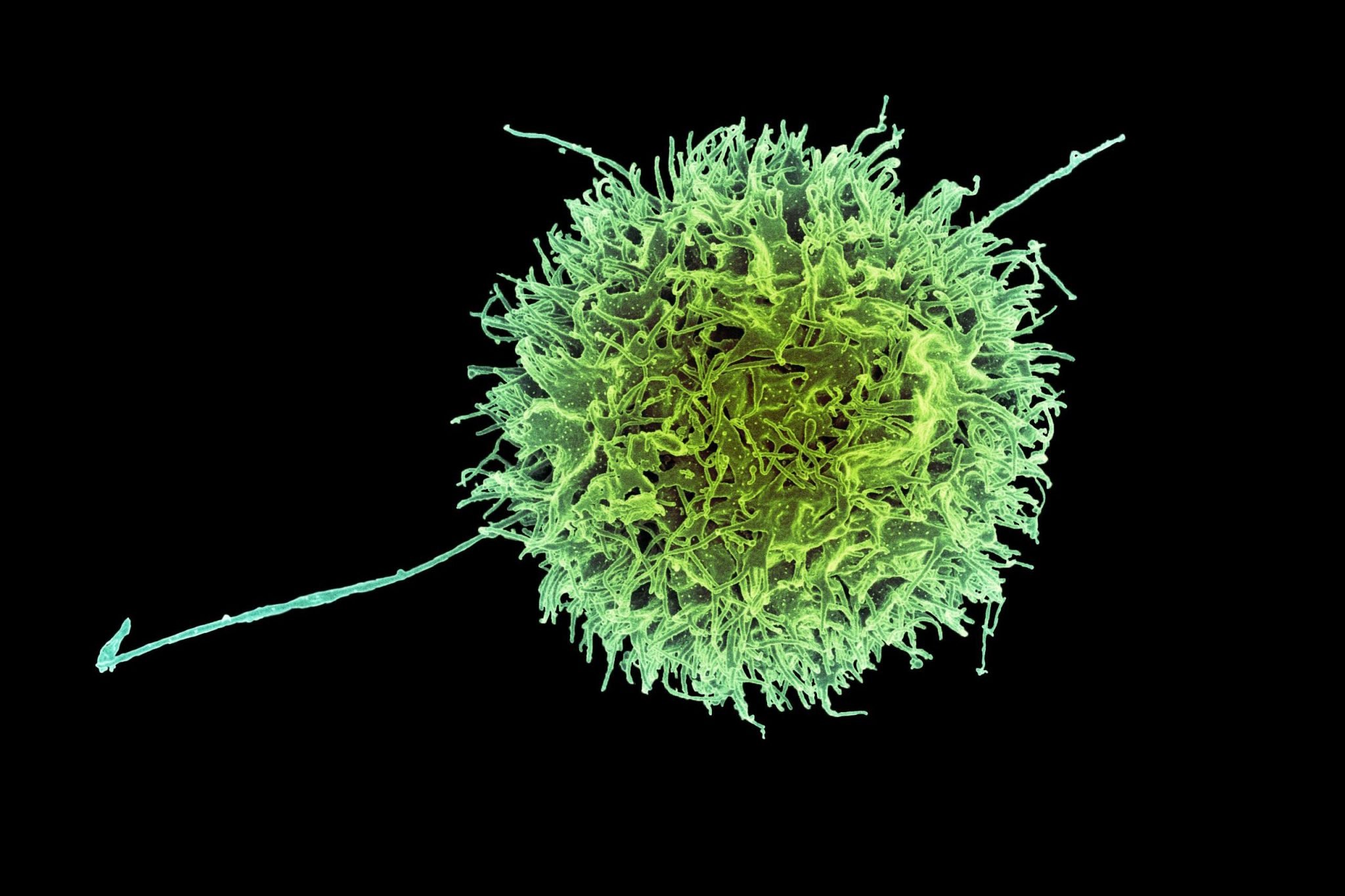💊 Cancer: this ready-to-use therapy promises to eliminate tumors
Follow us on Google News (click on ☆)
Researchers from MIT and Harvard have designed genetically modified natural killer (NK) cells that exhibit a remarkable dual capability. On one hand, they avoid being recognized as foreign by the patient's immune system through the suppression of certain surface proteins. On the other hand, they are equipped with specific receptors allowing them to precisely target cancer cells. These CAR-NK cells have demonstrated their effectiveness in mouse models with humanized immune systems, where they eliminated tumors while remaining discreet against the body's defenses.

Genetically modified natural killer cells show increased effectiveness against cancer.
Credit: NIAID
The mechanism of action relies on genetic engineering that allows these therapeutic cells to be masked. Scientists used small interfering RNAs to reduce the expression of HLA class 1 proteins, normally responsible for immune recognition. Simultaneously, they introduced genes coding for proteins like PD-L1 that enhance the cells' ability to destroy tumors. This unique combination creates stealth cells particularly effective against lymphomas, as shown by experiments on mice carrying human cancer cells.
The major advantage of this technology lies in its potential for immediate use. Unlike personalized cell therapies that require several weeks of preparation, these CAR-NK cells could be produced in large quantities from healthy donors and stored for rapid use. This characteristic paves the way for 'ready-to-use' treatments that could be administered shortly after diagnosis, a considerable advantage in the race against tumor progression.
The safety of these modified cells represents another significant advancement. Researchers observed a notable reduction in cytokine release syndrome, a dangerous inflammatory reaction often associated with conventional immunotherapies. This improved safety profile, combined with their demonstrated antitumor efficacy, positions these CAR-NK cells as a serious alternative to CAR-T therapies currently used for certain blood cancers.